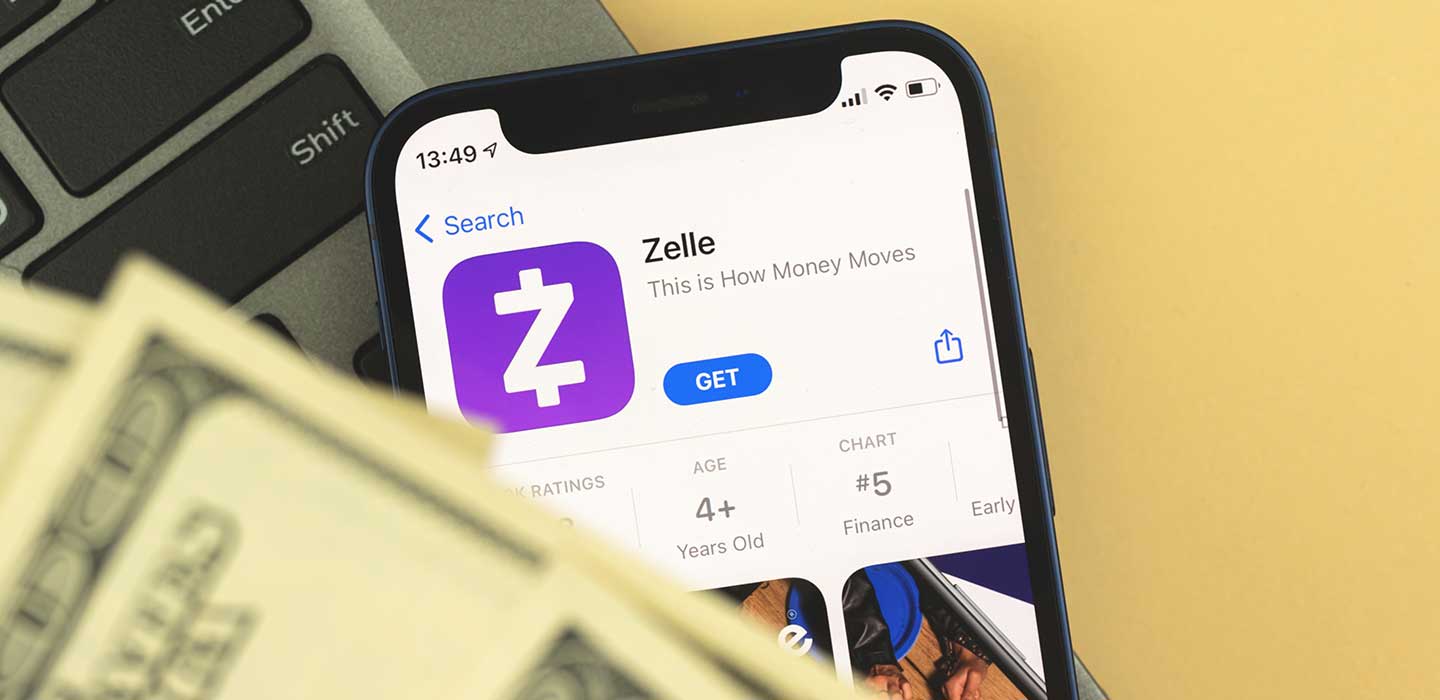Payment scams and check fraud occur when someone you don’t know tries to get you to send them money. Scammers often create convincing stories to make their requests seem urgent and real; they can even impersonate someone you know in need of money. It’s important to know how to protect yourself.
Types of payment scams
Scammers use apps like Venmo, Cash App or Zelle® to get people to pay or transfer funds with the promise of something in return. Here are some examples:
- Online marketplace: Seller scams occur when a fraudster requests payment for a service or product you’ll never receive. They make it seem like a great deal, but once you pay, they don’t deliver the product.
- Buyer scams: These happen when a scammer pretends to overpay for an item you're selling and then asks you to return the difference. This typically results in lost funds.
- Pay-in-advance scams: You’ll be promised a large reward, like a prize or a job opportunity, but asked for an upfront fee. This often turns out to be a scam. Once you pay the scammer, it’s difficult to get the money back once it leaves your account.
- Prize and sweepstakes scams: These are schemes where scammers trick people to think they’ve won a prize, lottery or contest, and then demand payment to claim the winnings.
How to protect yourself
- Verify the person’s identity: Fraudsters can be strangers, act on behalf of a company or impersonate someone you know. Take steps to verify the source and never send money unless you’re certain of who they are.
- Be careful with urgent requests: If you receive an urgent money request, verify it directly with the company through an official website or phone number. Urgency is typically a red flag.
- Don’t share personal information: Never give out your account numbers, Social Security number or other personal information over the phone, in an email or through a text message.
- Use security features: Turn on all security settings in your payment apps (Venmo, Cash App and Zelle.) with two-factor authentication. This will help protect your account from strangers trying to login and steal your money or information.
Check fraud
Check fraud typically happens when a person you don’t know asks you to deposit a check. It’s usually for more than they owe you. They’ll usually ask you to send some of the money back to them because they accidentally overpaid you.
Types of check scams
Scammers use fake checks to get your money. Here are some examples:
- Mystery shopping: This happens when scammers pretend to hire you as a mystery shopper and ask you to evaluate a retailer that sells gift cards, money orders or a wire transfer service. They send you a check to deposit and then ask you to wire some of the money to someone else. By the time you realize the check is fake, the money you wired is gone, and you’re left owing the bank.
- Overpayments: A stranger might buy something from you online and send a check for more than the agreed price. They’ll ask you to refund the extra amount. Once you send the refund, you’ll find out the check was fake, and you’ll lose both the item and the money you refunded.
- Job scams: Scammers will post fake job listings and reach out to offer you a position. They might send a fake check for equipment or training and ask you to send back the extra money. Once you do, you’ll discover the check was fraudulent, and you’ll be out the money you sent.
How to protect yourself
- Be wary of overpayments: Be cautious if someone sends you a check for more than the amount you are owed and asks you to return the difference.
- Understand the risks: If a check is fake, you will be responsible for the full amount.
- Never deposit checks from strangers: Never deposit a check from someone you don’t know or trust.
- Verify the check: Always check with the bank or the company that supposedly issued the check before depositing it.
What to do if you’ve been scammed
- Contact your bank: If you contact your financial institution quickly, they may be able to help stop the transaction.
- Update your passwords: Make sure your payment applications and Online and Mobile Banking accounts are secure with a difficult password.
- File a report: Contact the Federal Trade Commission (FTC) to report the scam.
- Connect with your local police department: For immediate help and reporting, we recommend you contact your local law enforcement.
By being aware of these scams and taking the right steps, you can protect yourself from losing money to scammers. Stay alert and stay safe!

